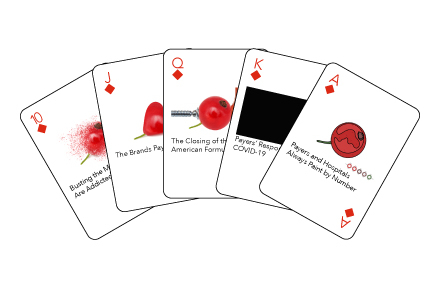Perhaps you’ve noticed that a standard deck of playing cards has 52 cards, just as there are 52 weeks in a year. Even if you’re not into playing cards or games of chance, you’re probably making bets every week. What are the odds of making it through that intersection before the light turns red? What are the chances not getting caught in the rain if we take a walk? What’s the probability of making that train if we leave now? And what’s the likelihood of creating a new healthy habit?
Payers also make bets — all the time. Counting cards will get you thrown out of a casino, but counting payers’ bets helps one walk a mile in their shoes. Walking through a list of 52 bets would give us blisters. So instead, let’s walk half a mile in payers’ shoes with a list half as long.
Some common bets
For decades, payers have been making bets when making formulary and medical policy decisions. Bet your bottom dollar that payers make these bets all the time:
- This new product is, in fact, safe and effective.
- This new product will not increase utilization.
- This new product will not increase costs.
- This new product will improve outcomes.
- This new product will yield medical-cost offsets.
- This new product’s superiority is real and not simply due to chance.
- This new prior authorization process will save more money than it costs to manage.
- These new prior authorization criteria will reduce inappropriate utilization but not appropriate utilization.
- The cost of appeals will be lower than the cost of care if exception requests were approved.
- This new tier differential will not be neutralized by copay cards.
- This new access policy will not lead to adverse selection.
- These long-term outcomes are compatible with our member-churn rate.
- These clinical trial results will resemble our real-world experience.
- This manufacturer will be a good partner.
- This manufacturer’s price increases will be predictable.
- A meeting with this account manager will yield important, useful information.
- These discussions will lead to negotiations and, ultimately, a contract.
- This new entrant will grow enough share to offset savings lost when we break a contract with the incumbent product.
Contractual bets
Over the last few years, there’s been a lot of talk and some action associated with risk-based contracts. Payers make a series of bets related to these contracts, including:
- We will reach agreement on these performance metrics and penalties/incentives.
- We will measure and report these metrics in a cost-effective manner.
- The costs of this measurement and reporting will not exceed the benefits of this contract.
- There will be no disagreements about these contract terms.
- There will be no disputes about the outcomes.
- There will be no disputes about who is to blame for poor outcomes.
Bets on cures
Gene therapies and the promise of cures present a new set of bets for payers, including:
- This “cure” will have a durable effect that eliminates future costs.
- We can find a way to finance these high up-front costs.
Predicting the unpredictable
Then there are the wild cards. As we’ve witnessed, a global pandemic can rock the health care system. Payers and their actuaries — who measure and manage risk and uncertainty — must, as best they can, predict how COVID-19 will likely impact utilization next year in order to inform premiums. Good luck with that! We’ve lived through AIDS, SARS, swine flu, Ebola, and MERS. Even once we tame the COVID-19 beast, other types of outbreaks are inevitable — you can bet on that.
Nearly all reputable scientists point to mounting evidence of climate change, which increases the frequency of severe weather and related morbidity and mortality. Payers need to start predicting the unpredictable and ensure there is enough surplus for a rainy day — or a hurricane.
How to play a winning hand
Some manufacturers take a winning approach with payers — an empathetic approach that recognizes and attempts to address the uncertainties payers face and the bets they make. Arguably, the most successful payer strategies and tactics are win-win arrangements benefiting both manufactures and payers.
In contrast, some manufacturers waste time, money, and resources on payer initiatives that do not consider the bets payers make. Think of the many programs rejected, messages ignored, conversations blocked, negotiations stalled.
A verse from “The Gambler” by Kenny Rogers offers sage advice:
“Every gambler knows
That the secret to survivin’
Is knowin’ what to throw away
And knowin’ what to keep”
Understanding the bets payers make provides insights into their experiences, perspectives, and motivations. Manufacturers can leverage these insights when formulating market-access strategies, making pricing-and-contracting decisions, developing communications for access decision makers, and designing clinical trials and HEOR. Optimizing market access is not a matter of luck and should not be left to chance. Ignoring payers’ bets is like not playing with a full deck.



No Comments